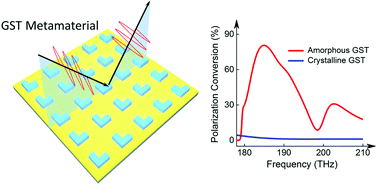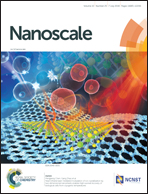Controlling optical polarization conversion with Ge2Sb2Te5-based phase-change dielectric metamaterials
Abstract
Recent progress in the metamaterial-based polarization manipulation of light highlights the promise of novel polarization-dependent optical components and systems. To overcome the limited frequency bandwidth of metamaterials resulting from their resonant nature, it is desirable to incorporate tunability into metamaterial-based polarization manipulations. Here, we propose a dielectric metamaterial for controlling linear polarization conversion using the phase-change characteristic of Ge2Sb2Te5 (GST), whose refractive index changes significantly when transforming from the amorphous phase to the crystalline phase under external stimuli. The polarization conversion phenomena are systematically studied using different arrangements of GST in this metamaterial. The performance of linear polarization conversion and the tunability are also analyzed and compared in three different designs. It is found that phase-change materials such as GST can be employed in dielectric materials for tunable and switchable linear polarization conversion in the telecom band. The conversion efficiency can be significantly modulated during the phase transition. Our results provide useful insights for incorporating phase-change materials with metamaterials for tunable polarization manipulation.



 Please wait while we load your content...
Please wait while we load your content...
